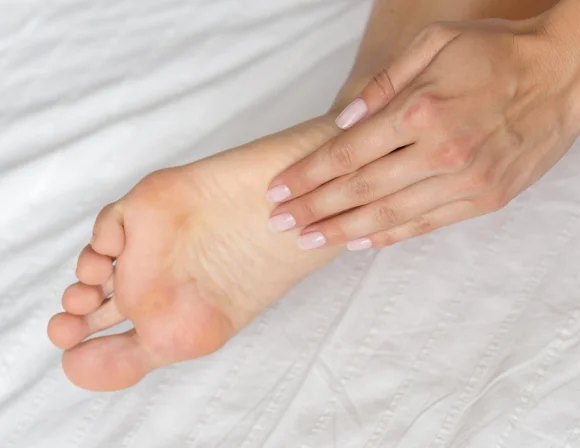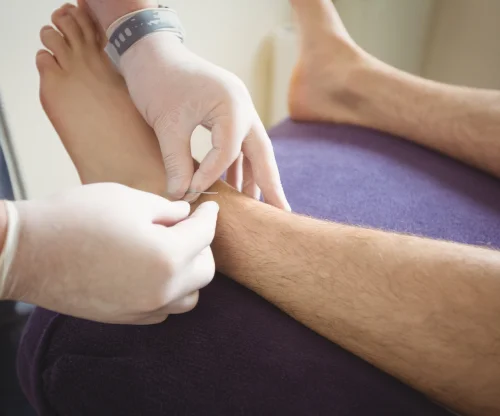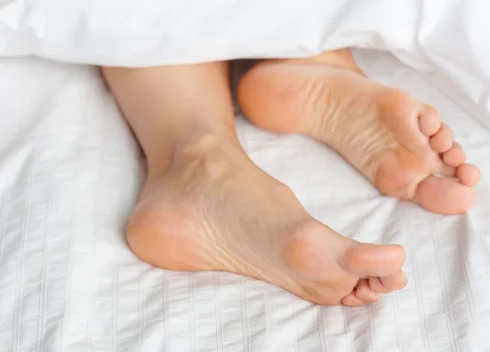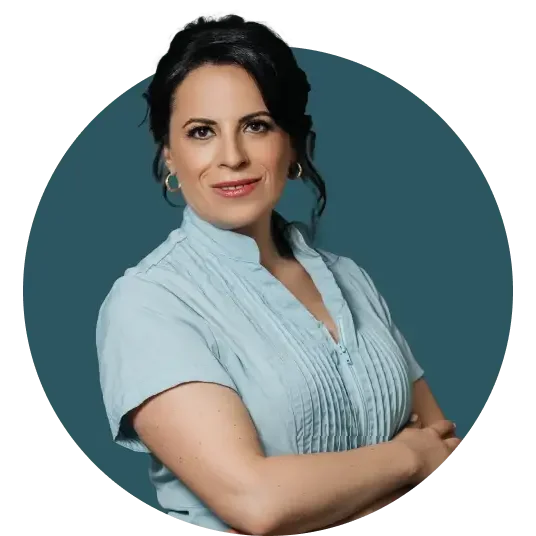Acupuncture for Plantar Fasciitis
Acupuncture for Plantar Fasciitis
What is Plantar Fasciitis?

Plantar fasciitis is a prevalent foot condition characterized by sharp plantar fasciitis pain, often centered around the heel. The plantar fascia, a band of tissue connecting the heel to the toes, experiences inflammation and micro-tears, causing discomfort, stiffness, and difficulty walking, particularly after periods of rest. Fortunately, several methods offer plantar fasciitis relief. These include rest, gentle stretches, proper footwear, and orthotic inserts. In more persistent cases, physical therapy, corticosteroid injections, or night splints may be recommended. Early intervention and a combination of these approaches can aid in managing the condition and alleviating the associated plantar fasciitis pain. Combining acupuncture with some other traditional practices, like Traditional Chinese Medicine (TCM) may offer some outstanding results.
What are the Symptoms of Plantar Fasciitis?
- Heel Pain. The hallmark symptom is a stabbing or sharp pain in the heel, especially when taking the first steps in the morning or after periods of rest.
- Foot Discomfort. Pain is often concentrated along the bottom of the foot, radiating from the heel towards the arches.
- Stiffness. The affected foot might feel stiff and tight, particularly after periods of inactivity.
- Worsening Pain. Pain might intensify after prolonged standing, walking, or strenuous activities.
- Tenderness. The heel area can be tender to touch or pressure.
- Difficulty Walking. The pain can lead to alterations in gait, causing discomfort while walking or running.
- Gradual Onset. Symptoms might develop gradually but can become chronic without proper treatment.
What Causes Plantar Fasciitis?
- Excessive Foot Stress. Repetitive activities like running, walking long distances, or standing for extended periods can strain the plantar fascia.
- Improper Footwear. Wearing shoes lacking proper arch support or cushioning can contribute to the development of plantar fasciitis.
- Tight Calf Muscles. Tight calf muscles can affect foot biomechanics, placing additional stress on the plantar fascia.
- Obesity. Excess body weight increases pressure on the feet, heightening the risk of plantar fasciitis.
- Flat Feet or High Arches. Abnormal foot arches can alter the distribution of weight, stressing the plantar fascia unevenly.
- Age. The natural aging process can lead to degeneration of the plantar fascia, making it more susceptible to injury.
- Certain Activities. Activities involving quick direction changes or sudden impact on the feet, like dancing or jumping, can contribute to the condition.
Acupuncture for Plantar Fasciitis

Acupuncture has emerged as an alternative plantar fasciitis treatment, offering potential relief from the discomfort associated with this condition. This traditional Chinese practice involves inserting thin needles into specific points on the body, aiming to stimulate energy flow and promote healing. When applied to plantar fasciitis, acupuncture may help reduce inflammation, alleviate pain, and improve blood circulation in the affected area. However, its effectiveness varies among individuals, and more research is needed to establish its consistent role in the treatment for plantar fasciitis. While acupuncture can be a complementary approach, consulting a healthcare professional for a comprehensive treatment plan remains crucial for managing plantar fasciitis effectively.
Acupuncture Treatment for Plantar Fasciitis at Pulse Acupuncture
At Pulse Acupuncture Clinic, the practice of acupuncture for plantar fasciitis takes center stage, with a focus on providing relief from the discomfort caused by this condition. Led by experienced practitioner Marina Doktorman, the clinic offers specialized acupuncture sessions targeting key points related to plantar fasciitis. By leveraging the ancient techniques of acupuncture, Marina not only offers solutions for plantar fasciitis but also explores acupuncture for acid reflux. She aims to alleviate inflammation, reduce pain, and enhance the overall healing process. While individual responses may vary, this approach holds promise as a complementary therapy for various conditions. Marina Doktorman’s expertise underscores Pulse Acupuncture’s commitment to offering holistic solutions, from addressing common foot ailments to aiding those with digestive issues like acid reflux.

-
Marina Doktorman, M.S., L.Ac., is an experienced acupuncturist who obtained her Masters of Acupuncture from the Tri-State College of Acupuncture in New York City in 2001. During her studies, she focused on Chinese Herbology, a branch of Traditional Chinese Medicine (TCM) that utilizes herbs to complement acupuncture treatments. Marina is licensed in both New York (NY) and New Jersey (NJ) and holds a Diplomate of Acupuncture from the National Certification Commission for Acupuncture and Oriental Medicine (NCCAOM), indicating her expertise in the field.
Why Pulse Acupuncture?

Experience
Marina Doktorman, L.Ac. has over 20 years of clinical experience.

RELAXATION
At Pulse Acupuncture, we aim to cultivate a spa-like environment.

Comfort
All of our needles are of the highest quality for painless insertion.
Patient Reviews in Brooklyn

I had the pleasure of working with Marina, Laryssa, and Jaesung, and they have all been absolutely amazing. Thanks to this incredible team, I can now sit, drive, walk, sleep comfortably, and function normally again. I truly don’t think I’d be where I am today without their care and expertise.
Pulse Acupuncture has become my go-to place for anything pain-related. The entire team is warm, compassionate, and professional, with outstanding bedside manners.
I highly recommend Pulse Acupuncture to anyone experiencing pain and looking for effective, non-invasive treatment. Truly life-changing! 😊
Marina is very accommodating, kind, and attentive, and her staff is a pleasure to deal with. I highly recommend Pulse.
Acupuncture has truly changed my life and has helped me in ways I didn’t even know were possible.
I started doing acupuncture to balance my hormones after 2 years of unsuccessful fertility treatments. When I started seeing Marina, my periods were starting to be regular and I was dealing with a few different symptoms which we started treating right away (constipation, random headaches, body aches)… in the last 3 years I have not been sick (no flu, have never tested positive for COVID) - Marina even treated me for allergies more than a year ago during an allergy episode in changing seasons.
Also want to mention Larissa as I started seeing her in Marina’s beautiful office and she’s also contributed to my wellness journey. Acupuncture is my favorite wellness practice, I see them regularly and have never felt better. I sometimes just tell them whatever I’m thinking/feeling knowing they will stick some needles in different places of my body and I come out floating and feeling so relaxed.
Excellent service- great results- highly recommended ~!
Marina is not only incredibly knowledgeable, but also very calming and has great bedside manners. If you're looking for a fantastic acupuncturist I can't recommend her enough!!
After 10 minutes of the procedure, you get into a different reality. Marina is knowledgeable, answers all the questions. After the procedure, the skin of the face glows, the body becomes lighter by a couple of pounds. I've been looking for such a procedure and state of mind for a long time.
I am beyond grateful to Marina, because after trying so many things, I almost lost hope. highly recommend Pulse Acupuncture and Marina for anyone seeking relief from pain or other health concerns.
The acupuncture sessions themselves are incredibly relaxing and therapeutic. Marina's gentle touch and precise needle placement always leave me feeling calm and rejuvenated. She also incorporates other techniques, such as cupping, which have been very beneficial for my overall health and wellbeing.
In addition to her skill as an acupuncturist, Marina is also a wonderful person to work with. She is warm, friendly, and genuinely cares about her clients' wellbeing. I always leave our sessions feeling refreshed and uplifted, both physically and mentally.
Overall, I highly recommend Pulse Acupuncture and Marina for anyone looking for high-quality acupuncture and personalized care. Thank you, Marina, for your exceptional service and dedication to helping others achieve optimal health!
Plantar Fasciitis Acupuncture - FAQ
How can acupuncture help with plantar fasciitis?
Acupuncture can assist in the treatment of plantar fasciitis in the following ways:
- Pain Relief: By inserting needles into specific points, acupuncture stimulates the release of endorphins, which are natural painkillers.
- Reducing Inflammation: Acupuncture can help modulate the immune system and reduce the inflammation of the plantar fascia.
- Improving Circulation: Enhanced blood flow can expedite the healing process and deliver essential nutrients to the affected area.
- Relaxing Muscles: Acupuncture can help relieve muscle tightness, which might be contributing to the strain on the plantar fascia.
Where are the acupuncture points for treating plantar fasciitis?
While the specific points can vary based on individual needs, common acupuncture points for plantar fasciitis include points on the foot, ankle, and calf. Some widely used points are “Kidney 3”, “Spleen 6”, and “Bladder 60”, among others. Ear acupuncture points can also be utilized in some cases.
How many acupuncture sessions are typically needed for plantar fasciitis?
The number of sessions required can vary depending on the severity of the condition and individual response to treatment. Some people might experience relief after a few sessions, while others may require ongoing treatments for several weeks or months.
Are there any side effects to using acupuncture for plantar fasciitis?
When performed by a trained professional, acupuncture is generally safe. Some potential side effects include minor bruising, light bleeding, or soreness at the needle insertion sites.
Contact us
Acupuncture therapy at Pulse Acupuncture Practice, at Clifton, NJ and Williamsburg, Brooklyn, NYC offers unique combination of various cupuncture types for healing on all levels: emotional, spiritual and physical by integrating ancient wisdom of energy healing with modern acupuncture techniques.




















































